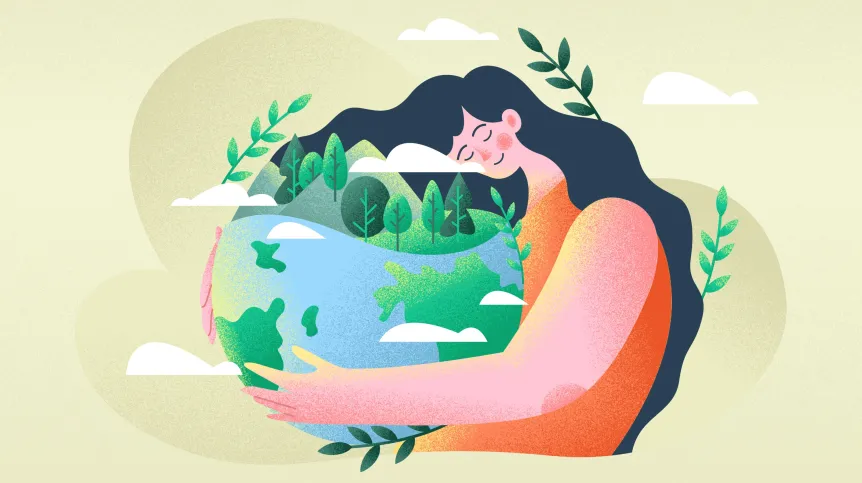
According to estimates, world consumption is equivalent to 1.7 of the planet's resources. August 2 is Earth Overshoot Day (also known as Ecological Debt Day), which 30 years ago fell on December 19. We throw away food, waste water and energy. And we should: refuse, reduce, reuse, recycle and rot, appeals the Institute of Environmental Protection.
On Earth Overshoot Day, humanity's consumption of natural resources exceeds the Earth's ability to supply or replenish them in a year. According to the Institute of Environmental Protection - National Research Institute, this date is determined by dividing the total natural resources of the biosphere by the global ecological footprint, and then multiplying it by the number of days in a year.
The Global Footprint Network estimates that humans consume far more resources than the Earth can naturally renew, and generate far more waste than it can absorb.
POLES ARE IN DEBT SINCE MAY
The Ecological Debt Day for Poland fell on May 2. This day was in May for Germany, France and Japan. We buy far too much, regardless of ecological costs, according to the Eurostat report 'Consumers and the Circular Economy'.
Consumerism (from Latin consumptio - consumption) consists in excessive and unjustified acquisition of material goods and services, while ignoring social, ecological and individual costs.
The Institute of Environmental Protection experts explain that such consumption satisfies secondary needs, e.g. desire for power, prestige, dominance, influence and higher social position. It often boils down to a lifestyle that is focused mainly on consumption and possession.
'When manufacturing products, man affects the environment directly and indirectly, in many ways: from the consumption of resources, such as water, minerals, soil, to emissions of pollutants into water, soil, air, and disruption of natural structures and processes. Becoming aware of all these consequences related to the consumption of one product should encourage the purchase of goods that are really needed and those whose production is as neutral as possible for the environment,’ says the institute’s director Dr. Krystian Szczepański.
184 LOAVES OF BREAD IN THE BIN - EVERY SECOND, EVERY DAY, ALL YEAR ROUND
Wastage affects not only the household budget, it also has economic, social and ecological consequences that go beyond the individual dimension.
'In Poland, every second throughout the year, nearly 153 kilograms of food are thrown into the bin in the entire food supply chain, and as much as 92 kg in Polish homes. It is as if every day, throughout the year, every second, Poles were throwing away 184 loaves of bread,’ says Robert Łaba from the Institute of Environmental Protection, who conducted a study on food losses and waste in Poland as part of the PROM project.
He explains that food production is a significant burden on the environment, including water and energy expenditures that are wasted with food thrown away. Throwing away 1 kg of pork wastes about 6 thousand litres of water used for its production, and 1 kg of bread thrown away is 1.6 thousand litres of wasted water.
CHANGE OF THINKING EFFORTS - REPAIR, GIVE AWAY, DON'T THROW AWAY
According to the 'zero waste' philosophy, consumers should adhere to the principles of: refuse, reduce, reuse, recycle, rot.
'Living by these principles is aimed at reducing the amount of waste generated by households, limiting consumption, reducing the number of ill-considered purchases and food waste. It is worth starting with even small steps, well-thought-out and responsible purchases, and they will certainly have a positive impact on the condition of our planet,’ says ecologists from the Institute of Environmental Protection
They admit that consistent implementation of all five principles into everyday life requires people to change their habits and give up many conveniences. That is why many people reduce their waste generation gradually.
'Currently, only 43 percent of us decide to repair broken electronics and 37 percent repair broken household appliances. But more and more often we decide to give equipment we no longer need to other people. Giving products a second life or buying them second-hand actually contributes to reducing the impact of our purchasing decisions on the environment,’ the environmental protection specialists say.
PAP - Science in Poland
kol/ agt/ kap/
tr. RL













